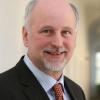
IIASA is proud to announce that nine researchers associated with the institute have been recognized in the 2023 Highly Cited Researchers™ list by Clarivate.
A Highly Cited Researcher is an influential individual whose broad impact in their research field contributes significantly to extending the frontiers of knowledge. The selection process, conducted by the Institute for Scientific Information (ISI)™, considers various dimensions, including the authorship of multiple highly cited papers ranking in the top 1% by citations for their field and publication year. This year’s list includes 6,849 individual researchers from institutions in 67 countries and regions.
“The Highly Cited Researchers list identifies and celebrates exceptional individual researchers whose significant and broad influence in their fields translates to impact in their research community and innovations that make the world healthier, more sustainable, and more secure. Their contributions resonate far beyond their individual achievements, strengthening the foundation of excellence and innovation in research,” explains David Pendlebury, Head of Research Analysis at the Institute for Scientific Information at Clarivate
The following IIASA researchers were selected for their extraordinary influence and performance in the fields of environment and ecology research, cross-field research, and social sciences:
- Oliver Fricko, Research Scholar in the Integrated Assessment and Climate Change and Sustainable Service Systems research groups of the Energy, Climate, and Environment Program.
- Petr Havlik, Biodiversity and Natural Resources Program Director.
- Zbigniew Klimont, Pollution Management Research Group Leader in the Energy, Climate, and Environment Program.
- Volker Krey, Integrated Assessment and Climate Change Research Group Leader in the Energy, Climate, and Environment Program.
- Michael Obersteiner, Principal Research Scholar in the Exploratory Modeling of Human-natural Systems Research Group of the Advancing Systems Analysis Program.
- Keywan Riahi, Energy, Climate, and Environment Program Director.
Riahi is one of only 238 researchers recognized in two fields of research this year (environment and ecology and social sciences).
Three researchers with IIASA listed as their secondary affiliation also made the list:
- Shinichiro Fujimori, Senior Guest Research Scholar in the Energy, Climate, and Environment Program primarily associated with Kyoto University, Japan.
- Andreas Richter, a Senior Guest Research Scholar in the Advancing Systems Analysis Program primarily associated with the University of Vienna, Austria.
- Joeri Rogelj, a Researcher in the Energy, Climate, and Environment Program primarily associated with Imperial College London, UK.
"We extend our heartfelt congratulations to the researchers acknowledged in the 2023 Highly Cited Researchers™ list. Their influence and dedication not only contribute significantly to advancing knowledge but also exemplify our commitment to making the world healthier and more sustainable for all people. This recognition reflects the impact of their innovative contributions in pushing the frontiers of research excellence,” concludes IIASA Acting Director General, Wolfgang Lutz.
The full 2023 Highly Cited Researchers list can be found online here.
News

26 July 2024
Navigating new horizons to protect human and planetary health

17 July 2024
Forests endure as carbon sink despite regional pressures

01 July 2024
